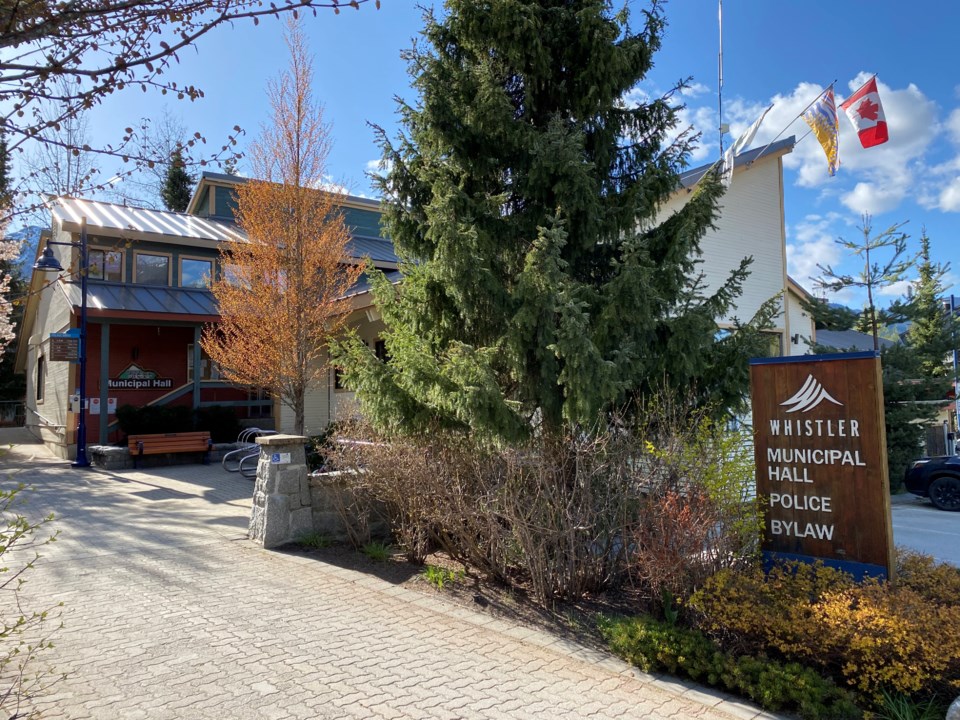Regular watchers of Resort Municipality of Whistler council meetings will have noticed the mayor’s spiel ahead of the public comment period has changed again, only months after the municipality adopted a new question and comment period structure that restricted input to agenda items.
New changes that first appeared at the May 14 regular meeting and continued at the May 28 meeting show the province’s new legislation around housing statutes (Bill 44) that prohibit public hearings on specific zoning bylaws are extending into other avenues of community engagement.
“We … want to note that recently, provincial legislation has changed and now prohibits public hearings on some land-use amendment bylaws,” said Mayor Jack Crompton ahead of the public comment period on May 28.
“As a result, speakers cannot speak about topics where a public hearing is prohibited, or where the municipality has opted not to hear a public hearing. We also want to note that this prohibition extends to council receiving correspondence on those items.”
Under Bill 44, municipalities are prohibited from holding public hearings on zoning amendments if they are compliant with its Official Community Plan (OCP), and the rezoning is for a residential development.
Asked whether the changes were at the direction of the province, Crompton said it was an abundance of caution on behalf of the RMOW, telling Pique the application of the new legislation in local government processes is an ongoing conversation at municipalities across British Columbia.
“We’re working to understand how to comply with provincial direction around public hearings on projects that comply with the [OCP], so when someone comes and makes a public comment on something that can be the subject of such a process, we need to be very careful,” he said.
The legislation itself does not make mention of public comment periods, and is specific to formal public hearings as part of bylaw amendments, but Crompton said it was being understood to apply to all formal proceedings.
“The direction is to be careful that [municipalities are] not creating de-facto public hearings that become a workaround to provide a public hearing where one is not allowed," he said.
UBC political science lecturer Stewart Prest said in an interview with Pique that it was one of many varied responses by municipalities across the province in grappling with the legislation.
“We’re seeing municipalities respond in a range of ways like Whistler trying to go as far as they can to limit conversation around developments, to other municipalities such as West Vancouver more or less declaring almost a form of war against the bill and its intent by trying not to implement the necessary enabling bylaws, or finding ways to push back against the province and its intentions," he said.
“We’re seeing a wide range of responses, and it’ll be some time before things shake out and we have a good sense of the full implications and the limits of this new legislation.”
Whether it is an overzealous application of the spirit of Bill 44, Prest said it is hard to say, as it could be interpreted as an attempt to avoid scrutiny of decisions, which Prest said could “ultimately come to the disadvantage of the council, because it will appear to voters paying attention that it's an attempt to try to avoid responsibility or accountability in between elections.”
Alternatively, however, he said there is legitimacy in attempting to avoid the equivalent of hearings being held via loophole despite their prohibition—which was exactly the rationale given to Pique by Crompton.
Whether the legislation causes trouble for municipalities on the front of public engagement is yet to be seen.
“To try to limit the opportunity to oppose particular developments is one tool in the provincial government's toolbox they are now using to try to move out of this extended period of housing crisis," said Prest.
“I think there will be some blame to go around, because it is trying to winnow down the opportunities for local involvement in decision making, but it is trying to serve what the province is saying is the greater good in ensuring housing affordability across the board."
For Whistler, there is not a complete gag on public input: At the May 28 meeting, Crompton directed the public to engage councillors in other ways outside of council meetings, and asked the public to engage fulsomely on an upcoming review of the RMOW’s OCP in 2025—which informs overarching housing policy.




